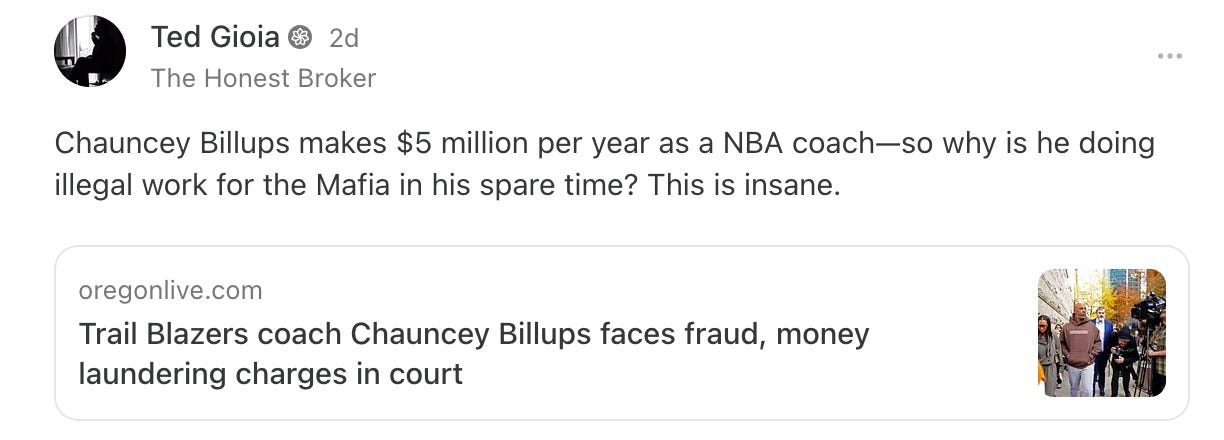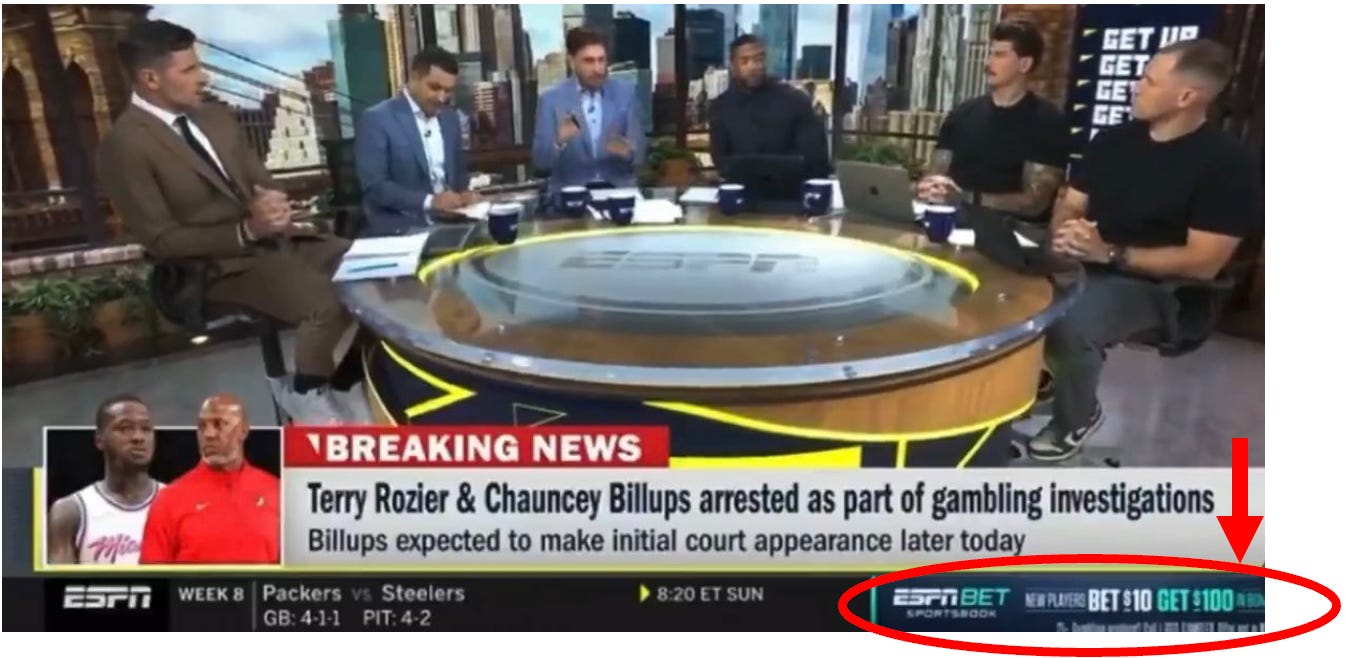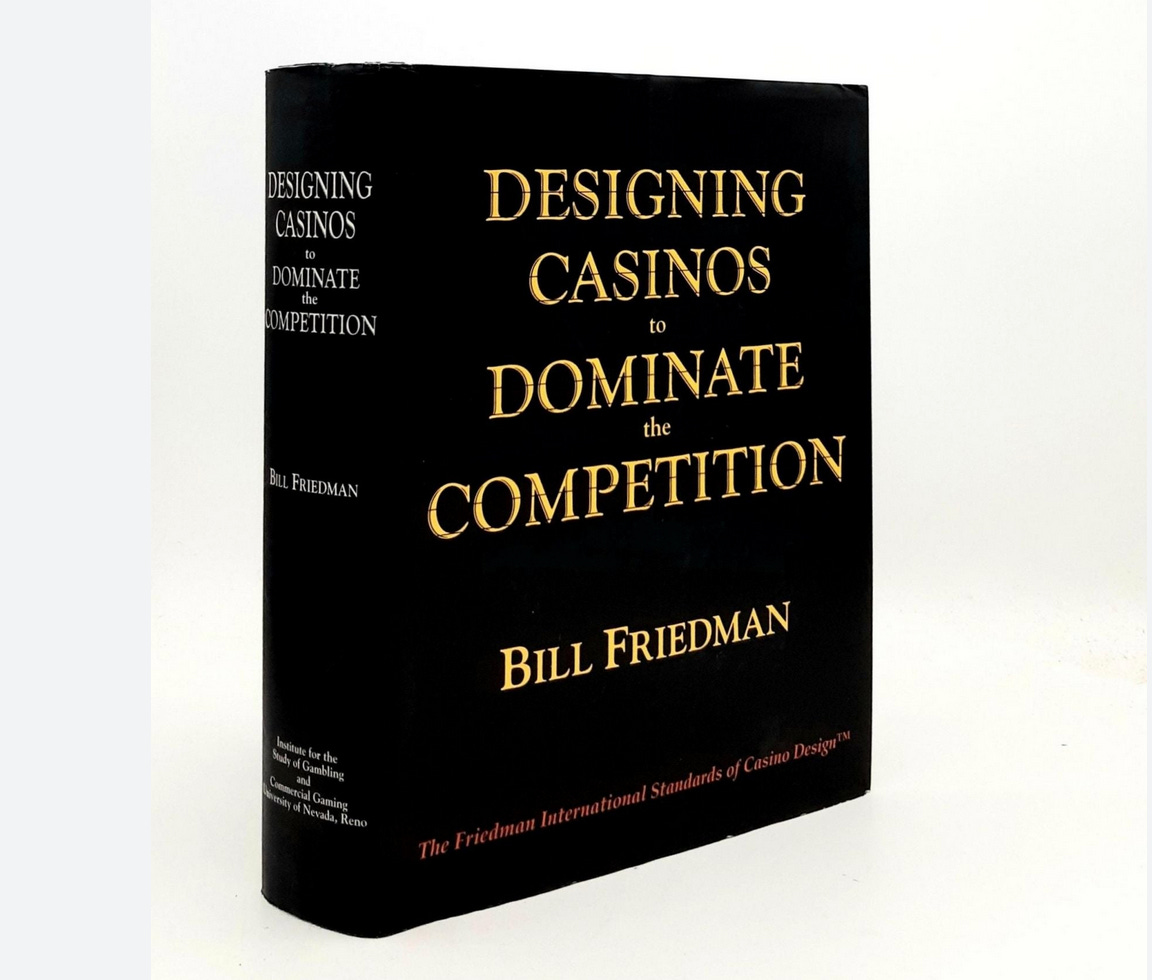Why Is Everything Turning into a Casino?
I share seven rules of casino management—see how many apply now to legit businesses
What a bummer of a day for ESPN.
The network needed to cover the FBI’s arrest of a NBA head coach and two players in a betting scandal. These pro athletes allegedly scammed gamblers—and worked in cahoots with the Bonanno, Gambino, Genovese, and Lucchese families.
In case you don’t watch Mafia movies, I’ll inform you that these are four of the five organized crime families running New York operations for decades. The Gioia clan has personal experience (of the worst kind) with these bad boys—my dad told tales about visiting Joe Bonanno’s home with his father as a youngster.1
Let me make this absolutely clear: You avoid tangling with these wiseguys at all costs—and you never get into business with them.
But the embarrassing part of the story happened while ESPN’s hosts covered this gambling scandal with much hand-wringing and moralizing. At the very same moment, in the bottom corner of the screen, ESPN displayed an ad for its own betting business.
A caption promises in all capital letters: BET $10 GET $100.
So let me spell it out for you: ESPN is now in the same business those five Mafia crime families once controlled. They constantly badger their audience into taking bets. But they are shocked when pro athletes get caught up in a gambling scandal.
It was like that moment in Casablanca, where the police captain shuts down the gambling operation—but needs to collect his winnings first.
But you can’t blame ESPN—or not much—because everybody is getting into the gambling business.
The NBA itself is part of this mess. The league aggressively lobbied for the removal of legal restrictions on sports betting, and now has several partnerships with gambling businesses.
It’s not just sports. Two weeks before the FBI arrests, the New York Stock Exchange invested $2 billion in the Polymarket betting operation. As Gordan Gekko says in the movie Wall Street: “It’s all about bucks, kid.”
Does the NYSE now count as the sixth family running gambling in New York?
“Among the 8 largest companies in the world, at least half of them promote addiction with screen interfaces that mimic slot machines.”
No, it’s not that simple. There are lots of gambling businesses in New York, starting with the government. The NY State Lottery brings in more cash than all the Mafia families combined. So the NYSE is a johnny-come-lately to the gaming tables, like country rubes visiting the Statue of Liberty.
Of course, the real insidious process is happening online, where every big web platform is imitating a gambling casino. And they rake in gangsta profits bigger than any gangsta has ever made.
How bad is it? Consider this fact: Among the eight largest companies in the world, at least half of them promote addiction with screen interfaces that mimic slot machines.
Please support my work by taking out a premium subscription—for just $6 per month (even less if you sign up for a year).
This is where I need to tell you about Bill Friedman, a former gambling addict who wrote a very influential (and expensive) book on casino design. He must sell lots of copies in Silicon Valley, because his gambling concepts are now sacred rules in building web platforms.
This is where the real action takes place, my friends. So let me share seven secret rules of casino design—and see if you can notice the Las Vegas-Silicon Valley connection.
Keep reading with a 7-day free trial
Subscribe to The Honest Broker to keep reading this post and get 7 days of free access to the full post archives.





